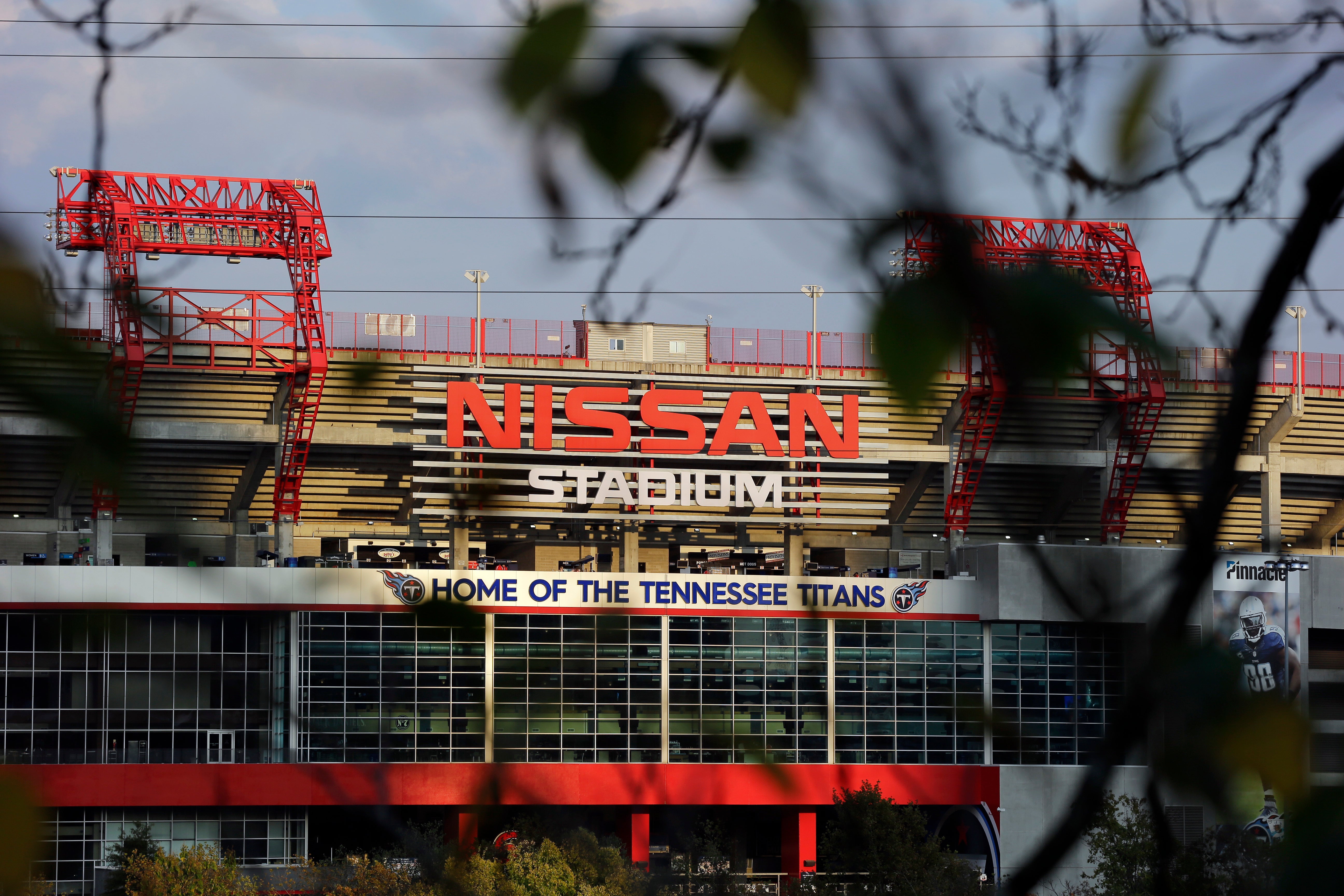Judges temporarily block Tennessee law letting state pick 6 of 13 on local pro sports facility board
A panel of judges has blocked a new Tennessee law that would reconfigure the group overseeing professional sports facilities in Nashville by letting state leaders pick six of its 13 board members

Your support helps us to tell the story
From reproductive rights to climate change to Big Tech, The Independent is on the ground when the story is developing. Whether it's investigating the financials of Elon Musk's pro-Trump PAC or producing our latest documentary, 'The A Word', which shines a light on the American women fighting for reproductive rights, we know how important it is to parse out the facts from the messaging.
At such a critical moment in US history, we need reporters on the ground. Your donation allows us to keep sending journalists to speak to both sides of the story.
The Independent is trusted by Americans across the entire political spectrum. And unlike many other quality news outlets, we choose not to lock Americans out of our reporting and analysis with paywalls. We believe quality journalism should be available to everyone, paid for by those who can afford it.
Your support makes all the difference.A panel of judges has blocked a new Tennessee law that would reconfigure the group overseeing professional sports facilities in Nashville by letting state leaders pick six of its 13 board members.
Late last week, three judges agreed the law targeting the Nashville Sports Authority likely violates home rule protections in the state constitution by singling out Nashville and failing to require approval by local voters or two-thirds of the metro council. The temporary injunction blocks the law while the lawsuit by the city proceeds through court. The law would have taken effect Jan. 1.
The ruling marks a fourth court decision against the state in the broader legal battle over laws passed by Republican legislators this year that dilute Democratic-leaning Nashville’s control, ranging from oversight of the international airport, to the size of the combined city-county metro council.
Established by city officials under a corporate charter in 1995, the Nashville Sports Authority has 13 board members picked by the city’s mayor and approved by the metro council. The new law lets the mayor retain a slim controlling majority with seven appointments, while splitting the other six picks among the House and Senate speakers and the governor.
Nashville officials have cited home rule protections in their lawsuits against several of the other new state laws that limit their power. Additionally, the sports authority lawsuit says that law would further violate the state constitution by removing board members before their terms expire.
Though the new law does not specifically mention Nashville-Davidson County, the judges called it “an untenable conjecture at best” to say the state meant for the changes to apply to other counties due to the parameters included by lawmakers.
In support of the change, prominent Republican lawmakers have reasoned that the state has authorized $500 million in bonds to help build a new $2.1 billion domed stadium planned for the Tennessee Titans. A planned performing arts center nearby is receiving $200 million from the state as well, House Speaker Cameron Sexton has noted.
Tim Meads, a spokesperson for the state attorney general's office, said their team is reviewing the court's decision.
Earlier this year, the Republican-dominant Legislature passed the sports authority law and a series of others targeting Nashville after city leaders spiked a proposal in 2022 to host the 2024 Republican National Convention. The exchange escalated efforts in previous years to pass laws that upended policies state Republicans didn’t like in Nashville, in addition to in left-leaning Memphis.
In one of the other lawsuits filed by Nashville officials, a judicial panel ruled the state cannot enforce a new law making it easier to pass changes through the metro council to the local fairgrounds speedway, which is being considered for upgrades in hopes of drawing a NASCAR race. The state declined to appeal that ruling.
Separately, judges blocked the law cutting the metro council from 40 to 20 seats before it would have taken effect for the August elections. That court case is ongoing.
Judges halted another change that would give the state a majority of the appointments to the board overseeing Nashville International Airport. The state has appealed in that case.